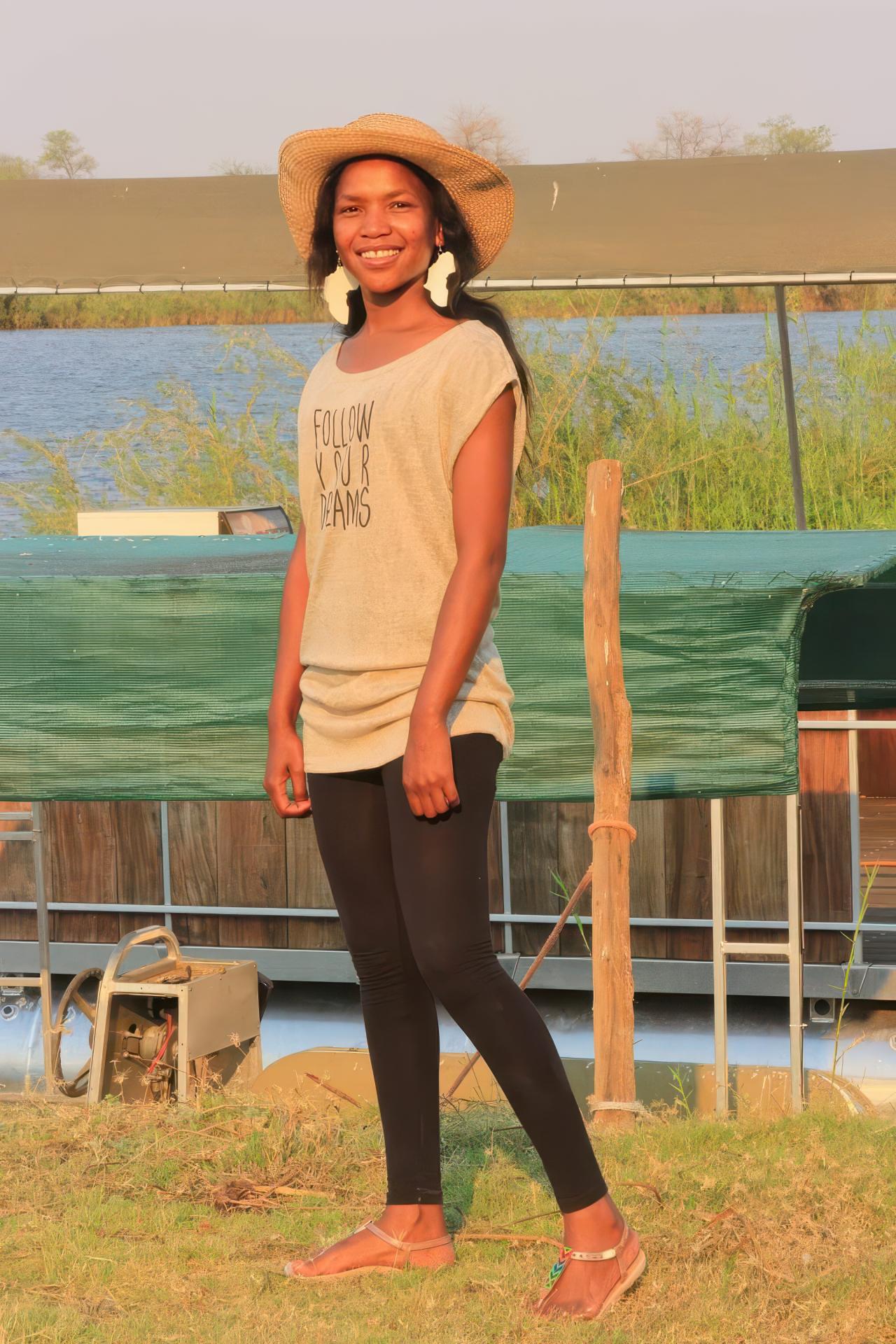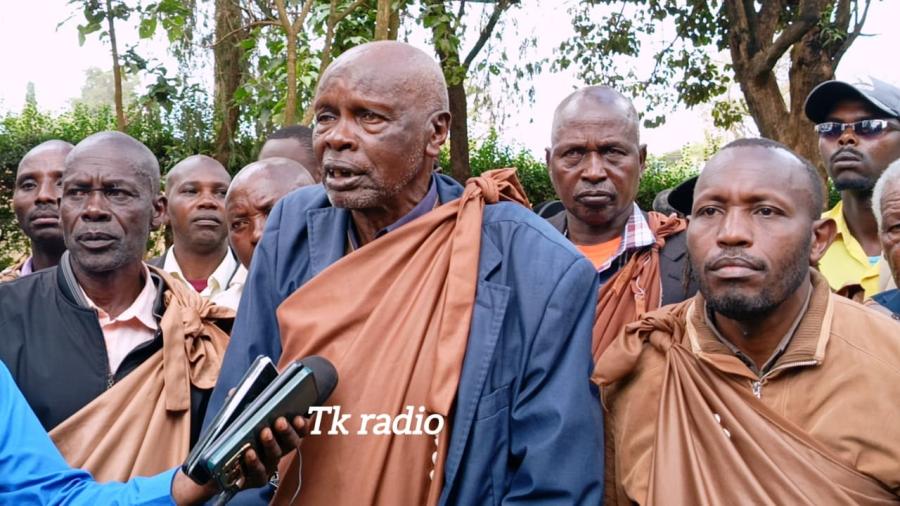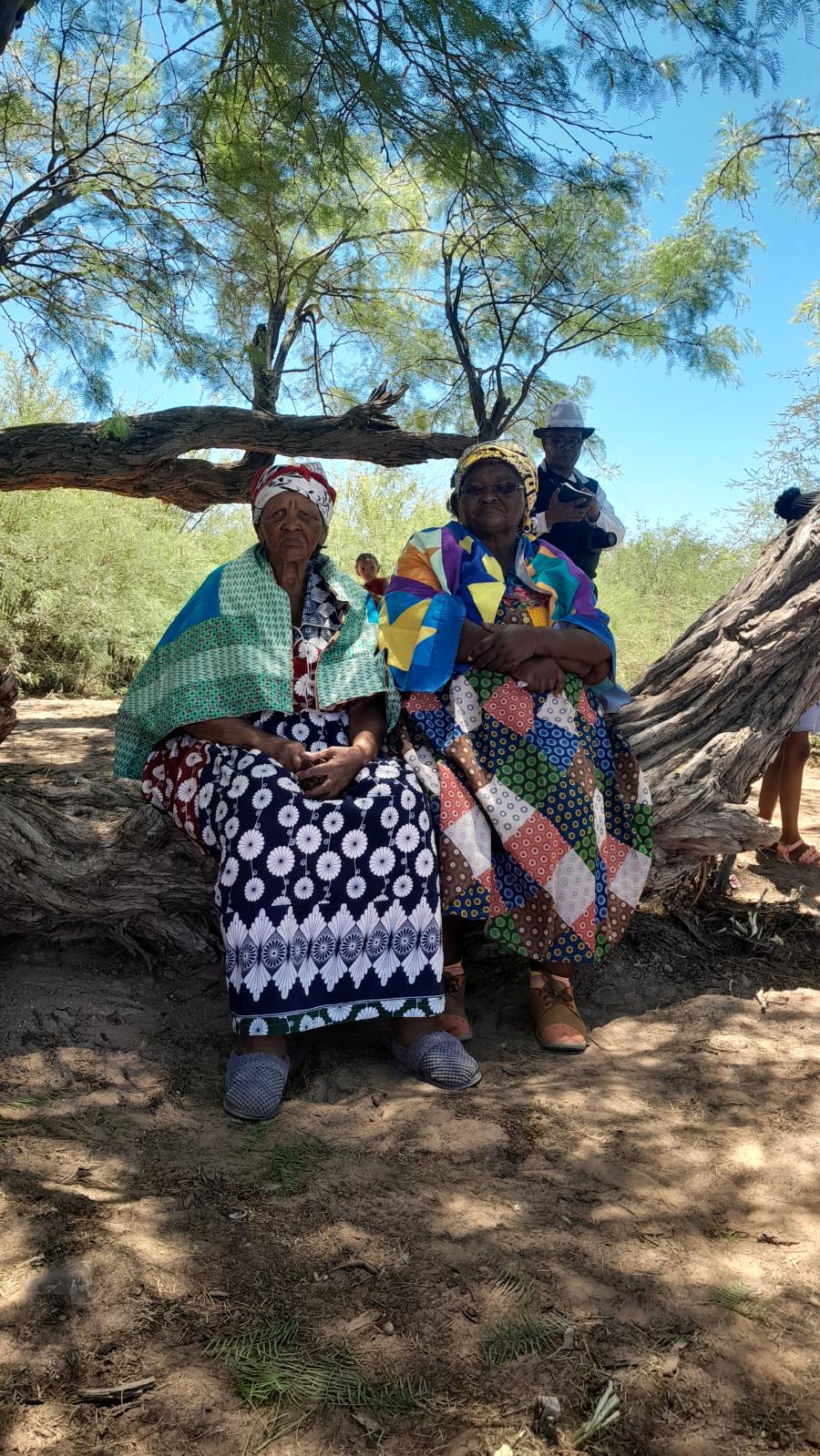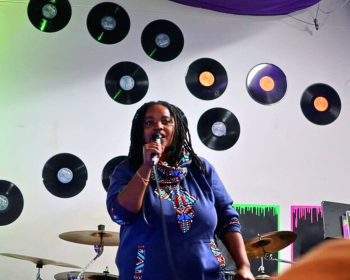
The San Peoples, known as Khwe, make up 80 percent of the 5,500 people that live in the Bwabwata National Park in northeastern Namibia. Bwabwata is the ancestral land of the San. In 2007, when the national park was established, the San people were relocated and confined to limited areas. Many members of the community face hardship and survive by gathering wild food and medicines through knowledge passed to us by our ancestors. They primarily harvest Devil’s Claw, which is sold all over the world and is a vital form of income for families.
In addition to losing access to their ancestral lands, the forced assimilation and imposition of colonial systems deeply impacted the San Peoples’ ancestral lifeways and transmission of According to Namibia’s 2003 language policy by the Ministry of Basic Education, Sports and Culture, the language of instruction in grades 1 to 3 should either be a mother tongue or the predominant local language. However, the language used in the lower primary grades of our schools is of the second-largest ethnic group, which Khwe children find extremely challenging to comprehend and leads to some children dropping out of school. Concerned bythe decline in reading and writing skills among Khwe San communities in Khwedam, a group of six young San women of the community came together to advocate for the revitalization of the language through storytelling. Led by Patricia Dinyando (Khwe San), the collective endeavored to document ancestral folktales in Khwedam and translate them into English to enable other communities to access the Khwe San cultural legacy.
Dinyando hails from northern Namibia and is a passionate advocate for Indigenous rights and education. While pursuing a Bachelor of Education at the University of Namibia, she has been actively involved in community development, volunteering at the Women’s Leadership Centre to empower San women in political participation and serving as a young San women and girls group facilitator. “Growing up, I saw firsthand how the lack of education impacted our community. Our Elders possessed immense wisdom, but without a way to document and share it, this invaluable knowledge was at risk of disappearing,” Dinyando says.

Patricia Dinyando.
Traditionally, education among the Khwe was an immersive experience intertwined with daily life. Elders were the keepers of wisdom, sharing stories, songs, and practical skills around the communal fire. This oral tradition fostered a deep understanding of the natural world, survival strategies, and the intricate web of relationships within the community. However, the colonial era disrupted this harmonious system. The imposition of western education, with its emphasis on written language and formal schooling, marginalized Indigenous knowledge systems. Many Indigenous languages, including Khwedam, were suppressed, leading to a loss of cultural identity and a disconnect between generations.
The Khwe Yicerengu Xi project, supported by Cultural Survival’s Indigenous Youth Fellowship, is a cornerstone of Dinyando’s efforts to revitalize Khwe culture. For the project, Dinyando collected and documented 10 traditional folktales, a significant milestone in Khwedam literacy, and is planning to publish a children’s book. By documenting and translating Khwe folktales, she aims to bridge the gap between traditional knowledge and modern education. “Through this project, we are not just preserving stories; we are reclaiming our narrative,” Dinyando says.
Dinyando’s vision extends beyond safeguarding her Peoples’ heritage. She seeks to create an educational system that respects and incorporates Indigenous ways of knowing and to empower Khwe children to learn and thrive in their own language, building a strong foundation for their identity and future. The efforts of the San youth collective and Dinyando’s leadership is a powerful testament to the importance of Indigenous knowledge and the resilience of Indigenous Peoples. Her commitment to education is a catalyst for change, inspiring hope for a future where Khwe culture flourishes and young people have the opportunity to become leaders in their own communities. “I believe that education should be a tool for liberation, not oppression. Our children deserve to learn in a way that honors their heritage and prepares them for the future,” Dinyando says. “By sharing our culture with the world, we hope to inspire others to value and protect their own Indigenous heritage.”
Top photo: Patricia Dinyando organizing a community gathering on Kwe Traditional Folktale in Bwabwata, Namibia.



